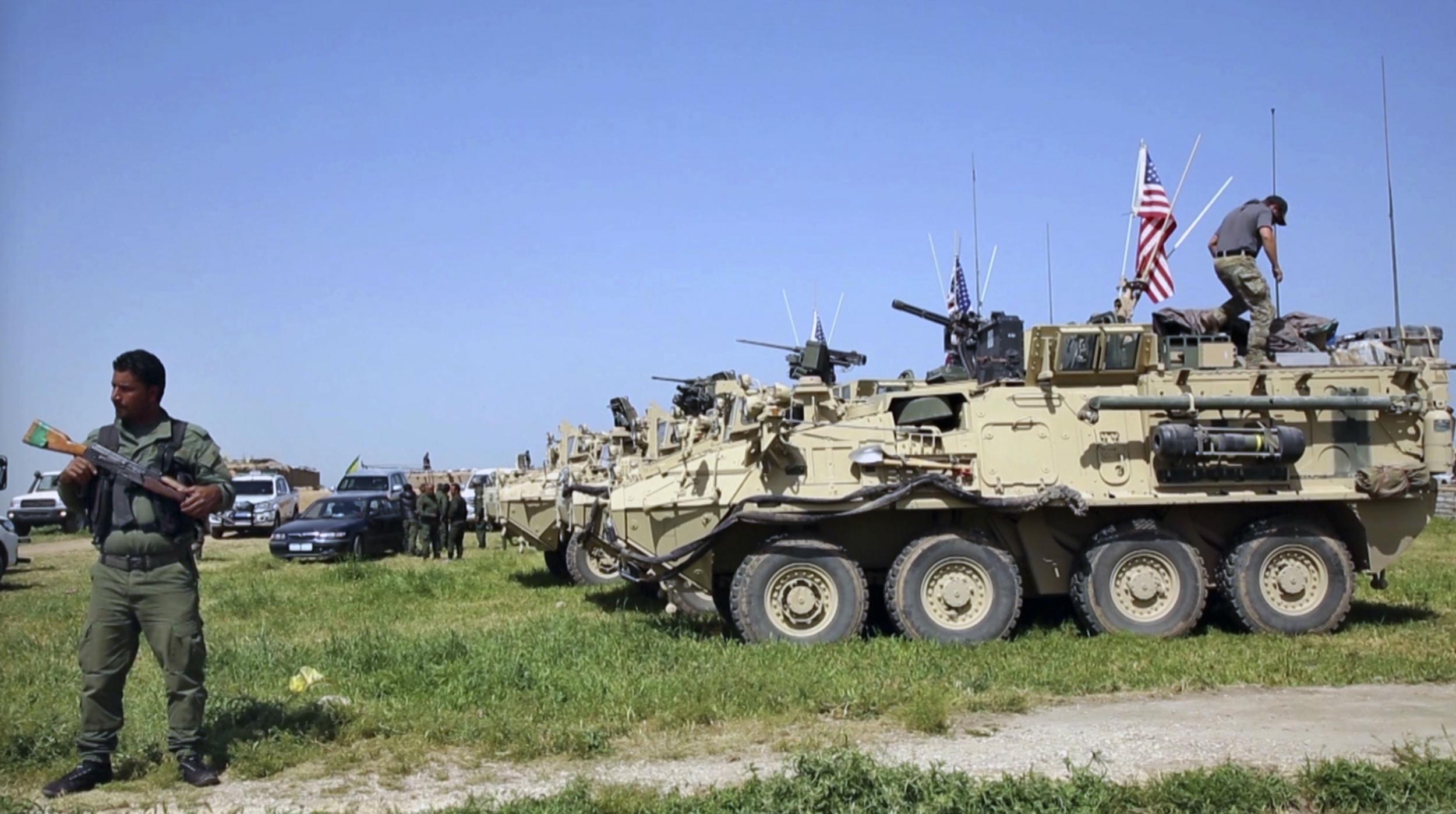Donald Trump to arm Syrian Kurds against Isis despite Turkish opposition

Your support helps us to tell the story
From reproductive rights to climate change to Big Tech, The Independent is on the ground when the story is developing. Whether it's investigating the financials of Elon Musk's pro-Trump PAC or producing our latest documentary, 'The A Word', which shines a light on the American women fighting for reproductive rights, we know how important it is to parse out the facts from the messaging.
At such a critical moment in US history, we need reporters on the ground. Your donation allows us to keep sending journalists to speak to both sides of the story.
The Independent is trusted by Americans across the entire political spectrum. And unlike many other quality news outlets, we choose not to lock Americans out of our reporting and analysis with paywalls. We believe quality journalism should be available to everyone, paid for by those who can afford it.
Your support makes all the difference.The Trump administration is to directly provide arms to Syrian Kurds to help in the fight against Isis - a move that is certain to anger regional ally Turkey.
Reports said the president had approached the plan to provide heavy weapons to the Kurdish People’s Protection Units, or YPG, as part of a plan to retake Raqqa, the Syrian city that is Isis’s defacto capital.
The US sees the Kurds as its most effective battlefield proxy in the fight against Isis in northern and eastern Syria. But Turkey says the group is an extension of an organisation operating inside its border which it considers a terror group.
The Associated Press said the administration was likely to provide 120mm mortars, machines guns, ammunition and light armoured vehicles. It is not expected to provide artillery or surface-to-air missiles.
The news agency said US officials including Gen Joseph Dunford, chairman of the Joint Chiefs of Staff, have met repeatedly with Turkish officials to try to work out an arrangement for the Raqqa assault that would be acceptable to Ankara. The Turks have insisted that the Syrian Kurds be excluded from that operation, but US officials said there was no real alternative.
Turkish President Recep Tayyip Erdogan is to visit Mr Trump in Washington next week. An Erdogan adviser, Ibrahim Kalin, has met with Thomas Shannon, a senior official at the State Department.
In Denmark, Defence Secretary Jim Mattis said he had useful discussions with Turkey and described the two countries as working out differences over a US alliance with Syrian Kurds in fighting Isis militants.
“That's not to say we all walk into the room with exactly the same appreciation of the problem or the path forward,” said Mr Mattis, after attending a meeting of more than a dozen countries fighting Isis.
“We're going to sort it out. We’ll figure out how we're going to do it.”
Tensions escalated last month when Turkey conducted airstrikes on Kurdish bases in Syria and Iraq. The Turkish military said it killed at least 90 militants and wounded scores.
The Kurdish group in Syria said 20 of its fighters and media activists were killed in the strike, which was followed by cross-border clashes. s
The instability has concerned Washington, which fears it will slow the effort to retake Raqqa.
Join our commenting forum
Join thought-provoking conversations, follow other Independent readers and see their replies
Comments